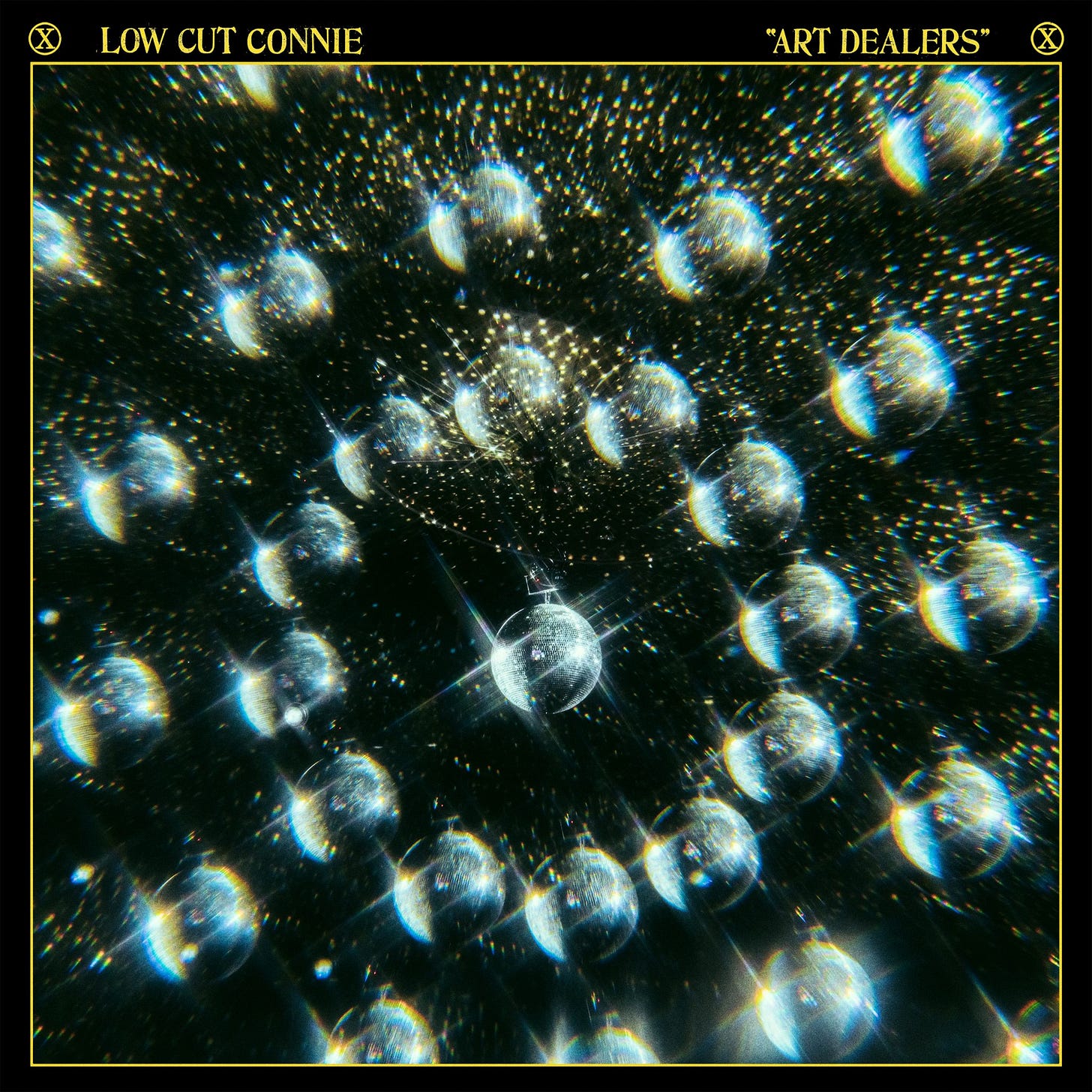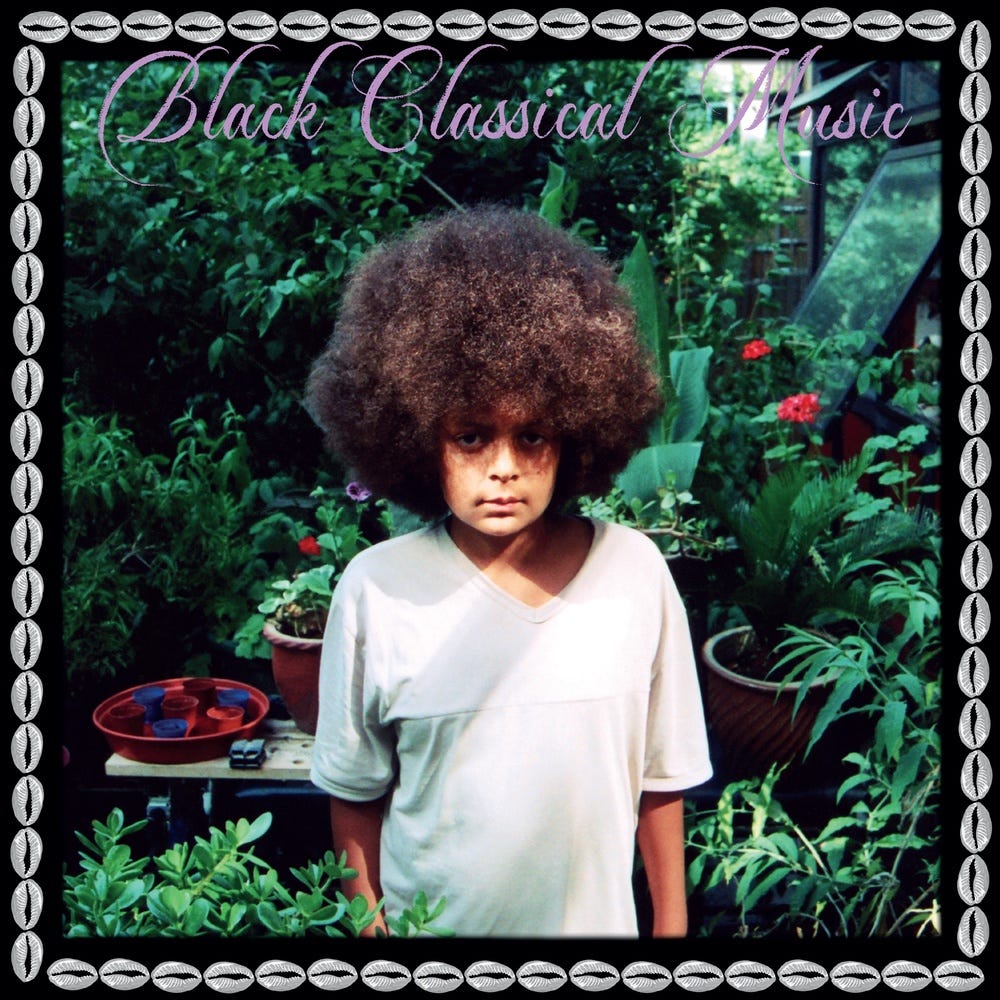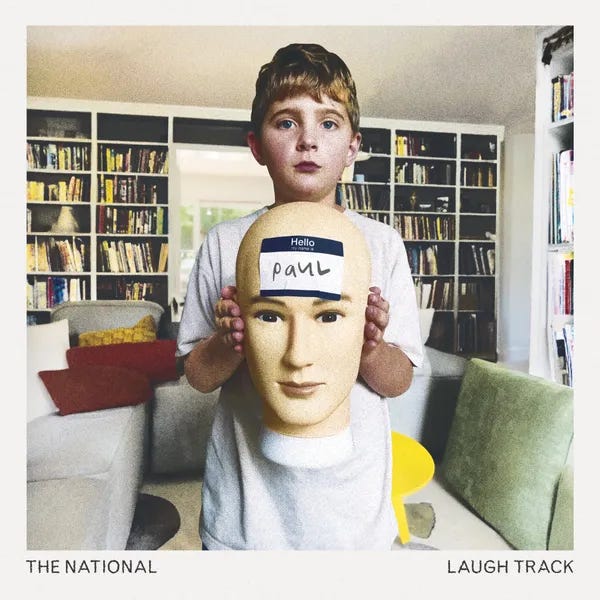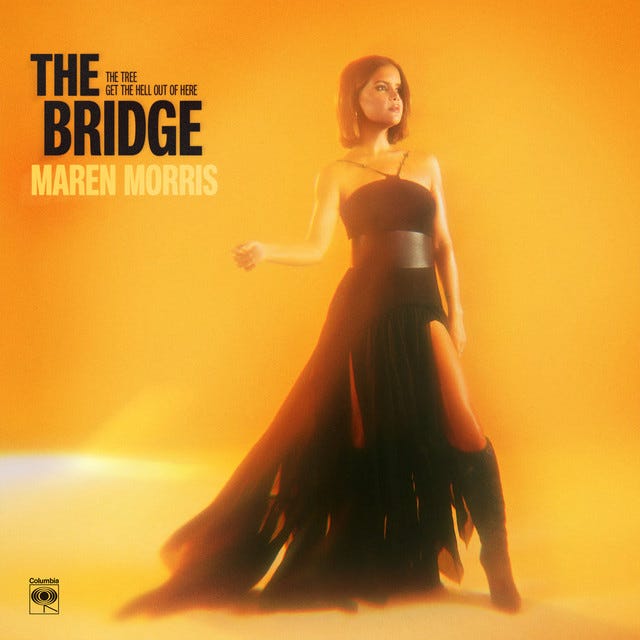Adventures in Listening, September 21, 2023: Take Me to the Place
Piano-pumpin' rockers Low Cut Connie make their best album yet, while Tyler Childers pares down for a straight shot of classic country. Plus, progressive jazz from Yussef Dayes and Harold López-Nussa.
Low Cut Connie - Art Dealers
Though Low Cut Connie have long distinguished themselves as one of our best, most vital rock and roll bands, it remains almost impossible to talk about them without using the adjective sleazy— a reference to their sometimes-lascivious lyrics but also to their very sound, a down-and-dirty amalgamation of piano-pumpin’ rock and barrelhouse boogie. Adam Weiner— now the sole creative principle behind Low Cut Connie— leans into the stereotype on Art Dealers, even using “Sleaze Me On” as the title for the seedy, street-walking first single. That’s certainly not the only time Art Dealers plays up the band’s bawdiness— this is an album featuring an irresistibly primitive, after-hours R&B banger called “Whips and Chains,” after all— yet that bawdiness is just one part of what makes Low Cut Connie special, something Art Dealers makes evident through its increased emphasis on Weiner’s singer-songwriter chops. He got introspective on the pandemic-era double album Private Lives, and continues that trend here by recalling stories from his time as the in-house piano man for an LGBTQ-popular bar. In both its rough-and-ready brawlers and its soaring, sing-along ballads, Art Dealers honors stories of love, loss, desire, and escape, as told by characters at the margins of polite society, every song resonating with warmth and compassion. Turns out they’re setting the table for a late-album masterpiece called “King of the Jews,” a prickly reflection on Weiner’s own run-ins with antisemitism. It’s an incredible moment of personal candor on an album that’s otherwise concerned with elevating the experiences of others. By combining their typically brash energy with newfound narrative focus, Low Cut Connie have made their best album yet— sleazy, but with a big heart.
Tyler Childers - Rustin’ in the Rain
Following on the heels of a triple-length opus and an album-long meditation on white supremacist terror, Rustin’ in the Rain feels positively radical in its low stakes and its modest scope— seven songs, 28 minutes, and no obvious metanarrative other than its pure country formalism. Yet if Childers’ aim was to make an album that belongs on the shelf alongside classics by Waylon and Willie, he couldn’t have hit his mark more perfectly. These seven songs are bolstered by solid, sturdy craft, yet they casually flex their eclecticism— Childers recites some Scripture, covers Kris Kristofferson, indulges in some gin-soaked weepers, works up a little country-soul, and, on the title song, tears into rip-roaring honky tonk with gleeful abandon. Though born of a specific lineage, Rustin’ in the Rain never feels like old-timey cosplay— when Childers offers a tearjerker lament, it’s for the pile-up of unanswered “Phone Calls and Emails” trapped on his lover’s phone. Winsome, impassioned, never overstaying its welcome— this is a case study in traditional country’s timeless appeal.
Yussef Dayes - Black Classical Music
By titling his new album Black Classical Music, drummer Yussef Dayes offers an alternative way for us to think about canon— a musical lineage that’s been carried forward by people of color, and that matches Eurocentric traditions in both breadth and sophistication. It might be the clearest mission statement yet from the London jazz scene, a testament to the borderless imagination and fertile cross-pollinations that also characterize the music of Nubya Garcia, Sons of Kemet, and Theon Cross. The album’s 19 originals span 75 minutes, and the experience is as immersive as it is unpredictable; whatever song you’re listening to does little to prepare you for the one that follows. Dayes demonstrates his straight-up jazz chops right out of the gate, offering a one-two punch with the title track— frenzied post-bop with crackling drum fills— and “Afro Cubanism,” which has a wailing Latin beat. From there, he follows his muse down countless tributary paths: He enlists Shabaka Hutchngs for a low-key soul groove called “Raisins in the Sun,” creates psychedelic jazz fusion on “Turquoise Galaxy,” and summons major roller rink energy on the irresistible “Jukebox.” “Presidential” gestures toward instrumental hip-hop— it wouldn’t sound out of place on a Makaya McCraven record— while “Pon di Plaza” boasts sweet reggae vocals from Chronixx. There’s no question that Dayes and his band can swing, but they’re just as interested in exploring rumbling polyrhythms, mood-setting R&B grooves, and ambient textures. Black Classical Music is a breathtaking statement of ambition, beautifully produced and paced for maximum enjoyment. Basically a shoo-in for jazz album of the year, yet also proof positive that jazz is a heritage containing multitudes.
The National - Laugh Track
Just five months after First Two Pages of Frankenstein, the masters of mope return with a second helping of middle-aged malaise— but rather than magnifying their emotional impact, these 12 new songs somehow seem to diminish it. At this point their depressive ruminations have almost curdled into self-parody; when Matt Berninger opens a song sighing “I’m going off the deep end/ barely sleeping,” it’s genuinely hard to believe he’s never used those lines before, or that he hasn’t used some version of them in basically every single National song ever. To be fair, the rumbling pulse of “Deep End (Paul’s in Pieces)” does find The National actually sounding like a rock band, as does the frenzied jam that caps off “Space Invader.” Both songs are scooped by the album-ending “Smoke Detector,” a frayed-nerve epic where Berninger’s talking blues become increasingly unhinged; it’s the best, most unvarnished cut they’ve released in a long time. But the rest of the album mostly drifts by under the gauzy effects and limpid electro-rhythms of Aaron Dessener’s post-folklore production; without any hard edges to push against, Berninger’s songs just disintegrate into a pile of morose mannerisms and woebegone gestures.
Harold López-Nussa - Timba a la Americana
For his first Blue Note release, the Cuban pianist has a lofty goal— namely, to shake the dust off of Latin jazz, freeing it from some of the tropes and trappings that have bound the genre for decades. The resulting album doesn’t seek to reinvent familiar forms, like the mambo and the cha cha, so much as reinvigorate them with an adrenalizing dose of hard bop and funk, plus a few low-key inclusions of electronic and programmed instrumentation. The resulting album is endlessly colorful, percussive, melodic, and fun— a record that unites familiarity and invention into something that feels linked to history, but unbeholden to it.
Maren Morris - The Bridge
It’s been a long, frustrating summer of reactionary country songs. On a new two-song project called The Bridge, Maren Morris offers a reaction to the reaction— not answering the likes of Jason Aldean and Oliver Anthony directly, nor offering liberal talking points to counter their right-wing oversimplifications, but instead articulating the sheer pointlessness of engaging the culture war on its own sordid terms. The folksy number “Get the Hell Out of Here” is especially good, sounding like it could be a farewell to Nashville’s rigid institutionalism or simply to the fascist ghost town that used to be Twitter. A native Tennessean, I liked these songs before I even heard them, at least in principle— Morris is noble in her efforts to show that there’s more to Nashville, more to the South, and more to country music than national news headlines might suggest. Thankfully, both songs sound good, too, assured in their craft and clear in their purpose. I’m more excited about Morris’ music than I have been in a long time.










